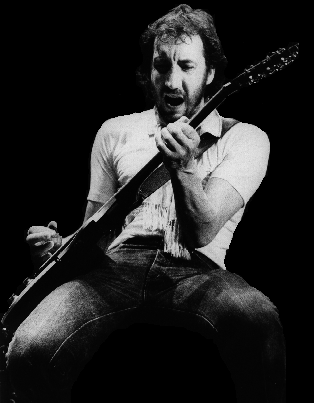A review of a magazine whose main job is to review new music and look at incidents past and present and essentially put them under review in features is quite odd really. This month's Mojo, however, is guest-edited by none other than (the always entertaining) Mr. Noel Gallagher and so therefore needs me to get my monocle out and give it a good thumbing through.
It's a great issue, it must be said, and Noel is engaging in the section where he discusses his favourite records and brutally honest in the interview with him (no change there then). There's a great piece on the '70s roots of punk (pub rock etc. feature, obviously) by that genre's finest commentator, Jon Savage, and a fantastic, eloquent interview with Manc poet (bloody) John (bloody) Cooper (bloody) Clarke.

It's our kid innit
It mustn't go without comment that Noel has done a fantastic job on the edit and in another life may well have made a fine critical writer or journo. Not nearly as much money in that game as his though, hey.
Noel's Big Mojo Edit
Tuesday, 16 August 2011
Posted by Unknown at 21:04 0 comments
Labels: Mojo, Noel Gallagher
The Electric Guitar
Wednesday, 9 June 2010
This, really, is a very short little piece I'm writing. Just an observation of my preferences on guitar playing. So here goes...
I just listened to Pulling Mussels by Squeeze and noticed something. The use of economic, almost stabbing guitar parts is way more appealing, to me, than the legato style chord strumming. Something which has the feel of somebody slashing downwards quickly on their six strings and pulling off slightly with the left hand or stopping the strings with the right, with an almost stacatto effect, really gives a rock song a feeling of aggression. For instance, when Noel Gallagher plays rhythm guitar, the sound is very full (think Wonderwall), whereas when somebody of the ilk of Joe Strummer (I know I mention him a lot, I am a tad biased) or Pete Townshend (primarily on I Can't Explain) plays there is a much more open-closed feeling to the rhythm guitar chords. Kind of, timbrally speaking, a 'stab'.
This kind of 'stabbed' motion gives more of a freedom to a lead guitarist to float his solo over the top, I feel, than if he were required to do it over those seemingly never-ending chord patterns.
Just a thought...
Posted by Unknown at 18:37 0 comments
Labels: Chords, Electric Guitar, Joe Strummer, Noel Gallagher, Pete Townshend, Stab
Cobain Dies... Britpop Thrives
Thursday, 20 May 2010
Kurt Cobain’s death was a tragic and shocking event in Popular Music history and affected his fans, his wife and his child. Cobain was a mercurial figure during his brief stint at the top of the rock music pile who became a kind of Messianic figure to some after his death. After Kurt Cobain came Britpop.
The Piscean embodiment of sensitivity died and along came the mid-‘90s, excess loving hit-makers from the U.K. Had Cobain not died in 1994, Britpop may well have still been hugely successful. My argument, however, is one that I stand by. Britpop was successful beyond what it may have achieved had Cobain lived. Due to his death, Grunge ceased to have mainstream popularity in Britain, had he not died, the Britpop camp may well have still set themselves up as an opposition to Grunge, but we then would have seen two camps: Britpop and Grunge. As it was, there was one: Britpop. Within that there was the Oasis camp and the Blur camp, but as a genre it managed to dominate. Had Cobain still been around and had he not grown so tired and disillusioned with fame, I believe that Britpop’s dominance would have only been coupled with that of Grunge, if at all.

After the success and excess of Britpop came a new bunch. People who took the anthemic formula of, say, Hey Jude by The Beatles, just as Oasis did and made a series of songs that at the time were seen as ‘classics’. You know the songs I mean: Coldplay’s Yellow, Travis’ Why Does It Always Rain on Me and so on and so forth. Oasis was merely the beginning of this: the excessively big, late nineties/early noughties chorus. Blur reverted to experimentalism, world music and, dare I say it, two minutes of the most joyously anarchic, power-chord infused Grunge Rock with Song 2 and broke the U.S. sales market. One does wonder what Kurt Cobain would have thought of it all.![]()
Posted by Unknown at 11:43 0 comments
Labels: Alex James, Blur, Britpop, Damon Albarn, Dave Grohl, Dave Rowntree, Graham Coxon, Grunge, Kurt Cobain, Liam Gallagher, Nirvana, Noel Gallagher, Oasis
